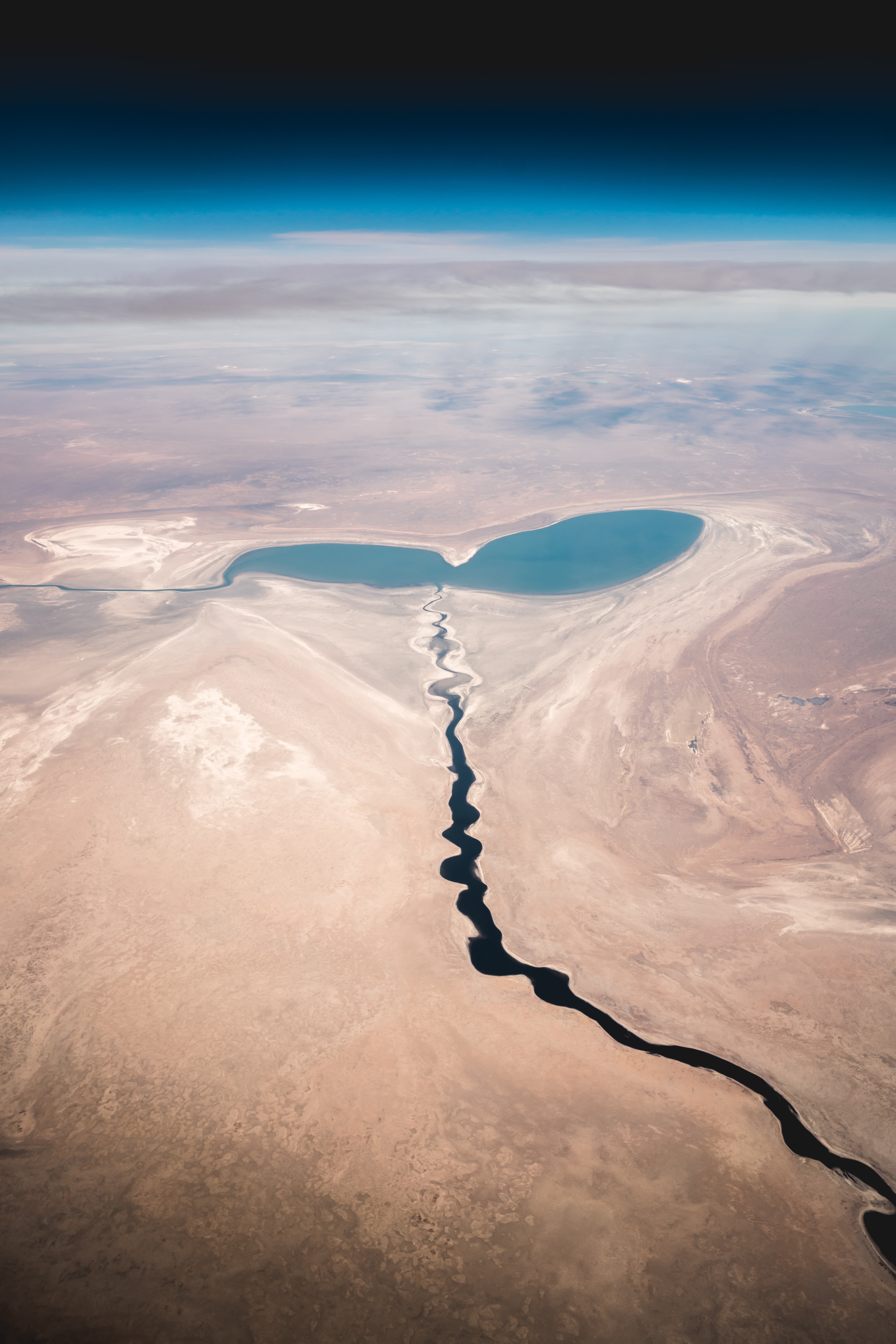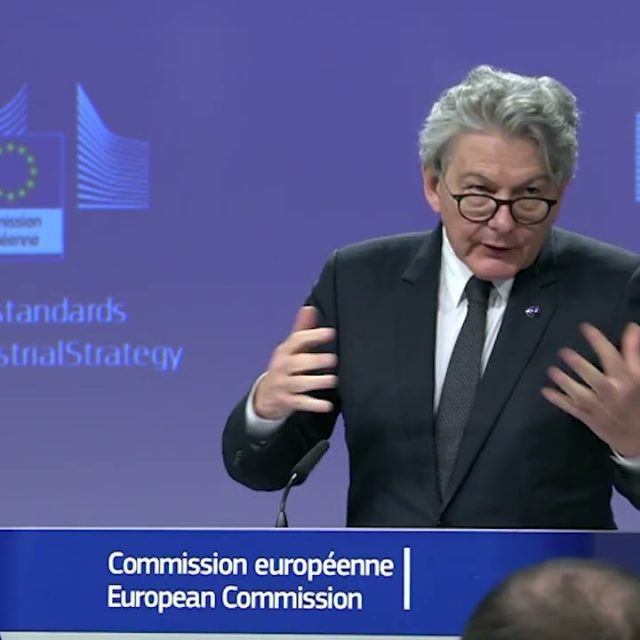They are the climate champions who are flying the flag for innovation around the world.
A ‘mini army’ of exciting entrepreneurs have been honoured at a prestigious event designed to promote the best in global greentech.
Organised by EIT Climate-KIC, the finals of “ClimateLaunchpad”, the world’s largest green start-up competition, were held in Amsterdam on 14 and 15 November.
It gave a unique chance for scores of start-ups from all over the globe to showcase their projects at the 2019 Global Final.
These range from projects promoting clean health and energy saving measures to food storage and recycling.
The competition is particularly timely as it comes just ahead of the opening in early December of the key Madrid COP 25 climate conference.
The ClimateLaunchpad winners hope to find sponsors or investors who might like their ideas and decide to finance the projects. The two-day event was packed with the “crème de la crème” of green start-ups and several of the attendees spoke to this website about their vision for the future.

They include Florence Akara, regional director of Femme International in Kenya, and the brains behind an innovative project which has produced sanitary pads for women that can be recycled and, most importantly, are affordable for women in Africa – costing only $5 a year.
Akara said, “This will particularly help poor women in poverty-stricken countries in Africa who might now be able to earn a living instead of being confined to home.”
A Spanish consortium has come up with a project called Oscillum, effectively a label that has the potential to save millions and reduce unnecessary food waste. Developed at the University of Elche, when applied on a product for sale in shops, the label changes colour from yellow, which indicates that the product is safe to eat, to blue (the non-edible colour).
A spokesman for the group said, “This could be revolutionary for consumers who, too often, throw food away just by following label indications.”
A scheme from India, called Germsafe Technology, aims to contribute to the improvement of public health, in particular, for children in poor countries who may be at risk from polluted water while, from the UK, the Greenhouse project has cultivated what is called “poly-carbonated protection” for use in greenhouses.

Manuel Lelio Gungulo, from Mozambique, said that the project he has come up with will enable toilets to be flushed using only one glass of water. This, he said, is because of a “special natural system” which, once scaled up, could be particularly beneficial to drought-stricken countries in Africa.
One of the aims of ClimateLaunchpad is to identify businesses with the best potential to combat the global climate crisis and Johanna Montenegro, from Colombia, is the brainchild behind a project, called Servel which aims to contribute to such endeavours.
This is a simple but efficient system which keeps food refrigerated, especially in shops, with very little dispersion of gases and minimal atmospheric pollution.
She said the system aims to replace old pollutant fridges and can contribute to cutting greenhouse gas emissions.

Another South American project, from Brazil and called “Green-mining”, involves giving people a tricycle and instructing them to retrieve specific materials that are then sold to companies.
The man behind the project, Rodrigo Olivera, said that enterprises could then re-use these items as building materials or for other use. The project, he said, has the potential to create employment and also boost recycling efforts.
Olivera praised EIT Climate-KIC for its commitment to fostering such efforts and its support, saying, “They send their experts to different countries to check, instruct and direct the most promising projects. Their support has been a Godsend.”
Elsewhere, a Pakistani entrepreneur has invented what he calls a “goat for money” project. Sheik Danish Stimulus said people in his country may possess a goat but, too often, do not have money to use the animal for other, potentially productive activities. The project, called “Pruges”, gives people the chance to purchase a goat and then exchange it for another use.
He joined others in recognising the value of and contribution made by EIT Climate-KIC and the “ClimateLaunchpad” initiative, saying, “ClimateLaunchpad is, indeed, a real Launchpad for people like us.All the participants are taught how to present their projects and are also directed towards possible investors.”
The Twende Initiative, from East Africa, aims to address what it calls the “financial and psychological harm” caused by menstruation with reusable products.
The project calculates that in any woman’s lifetime some 5,940 disposable pads are used, usually at a considerably higher price for women who live in poor areas. The Initiative, in Amsterdam, highlighted “period poverty” – women who are unable to work for several days every month because of menstruation and who cannot afford to buy products that could help them work outside of the home.
The people behind this project said they have also started a special menstrual media education in schools.
Overall, a start-up called Leafy Ke which converts used diapers into fuel for homes, was selected as the top green business to deliver a positive climate impact. The runner up was Maclec, from India, a hydrokinetic turbine technology company, while Enerdrape, from Switzerland, came in third with their idea which has developed the first ever geo-thermal panel.
But awards for other categories were also presented at the Global Final and “Mikoks”, a project from Turkey, received a “Theme Award” for producing natural bio-fungicides which is designed to increase the shelf life of fresh fruit and vegetables.
The mixture contains a natural plant-based fungi killer in microcapsules which can be used a different stages of the production cycle for different fruits.
The judges said the value of such an initiative is reflected by data that shows that, globally, every year 1.3 billion tons of fresh fruits and vegetables are wasted.
A British project – “Multus Media” – means that meat can now be grown in a laboratory which,it is estimated, will cut the environmental cost of meat production. It is estimated that, with this project, 46% less energy is needed, 93% less land, 99% less water and 90% less Co2 than using traditional agriculture methods. The object, said a spokesman for the project, is also to cut total meat consumption by 10% by 2030. Multus Media received the Female Founders award.

Constantjin van Oranje Nassau, the younger brother of the King of the Netherlands, Wilhelm van Oranje Nassau, attended the event and praised the development in his own country of a real “Tech Leap” and the creation of new jobs for “old and new markets.”
He warned, though, that “you have to catch the right moment for a project to be successful. The relevance of the project is important but so too is the right timing.”
Asked which country inspired him the most he said, “I am inspired by Israel and its technical development and also by Estonia for its advanced technology. What has happened in Amsterdam in the last 4 years is also amazing. But these examples are difficult to copy. Every country has to find their own way to develop.”

Dr Kirsten Dunlop, CEO of EIT Climate-KIC, speaking at the finals, said that what is needed is “collaboration and cooperation” to bring about “transformative change.”
To specifically tackle the climate crisis, she said, people need to change the way they “think and act”.
Looking to the future, she warned this will be hard and means “crossing boundaries.”
The ClimateLaunchpad initiative, led by EIT Climate-KIC, Europe’s largest public-private partnership addressing climate change, seeks to develop innovations and unlock cleantech potential.
EIT Climate-KIC is a UN Environment programme and comprises leading scientists and global business leaders. It is also supported by the EIT, a body of the European Union.
The ClimateLaunchpad competition supports aspiring and promising cleantech entrepreneurs with training, coaching and networking opportunities.




